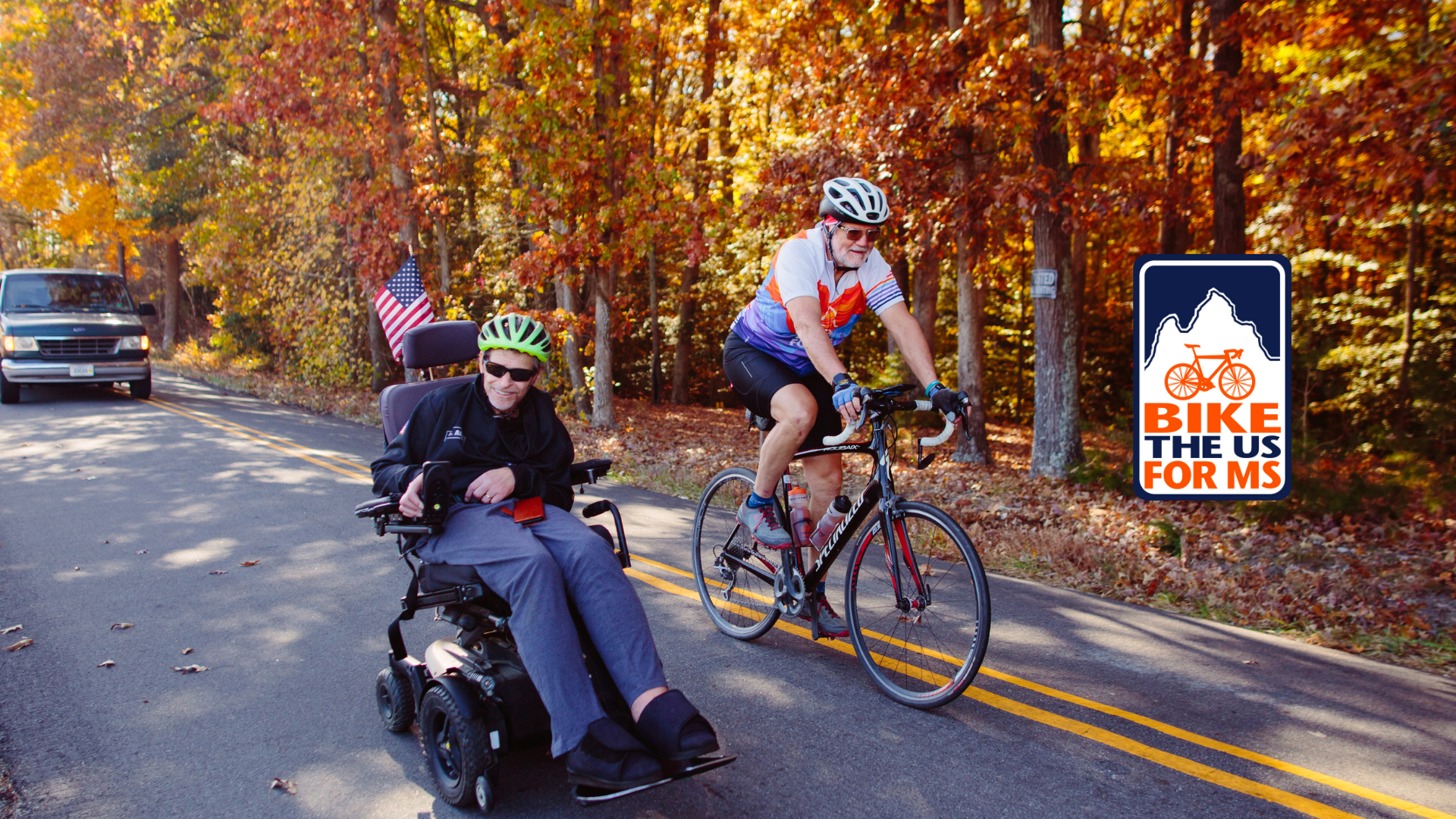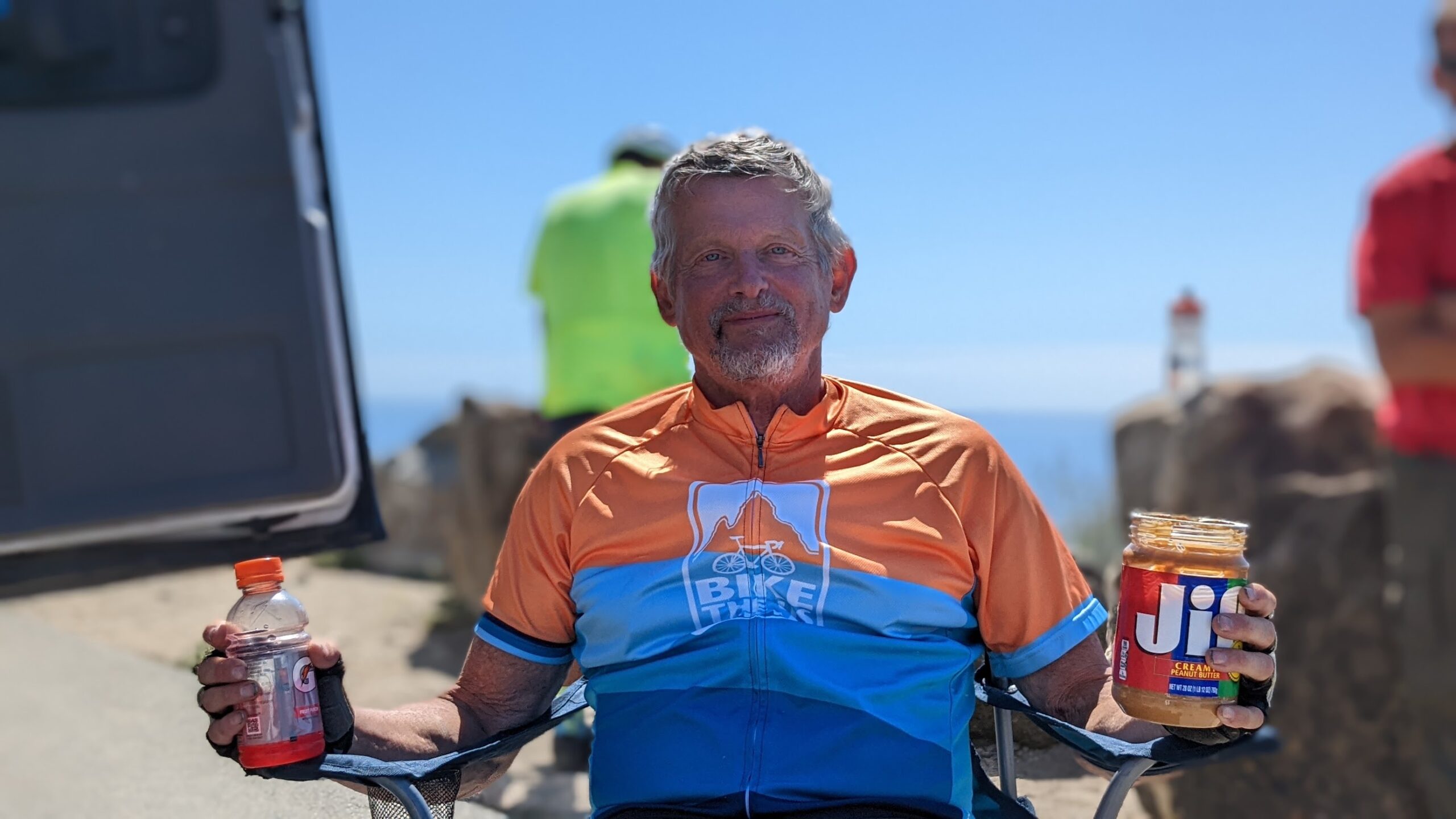Meet Mia – a badass PhD student at Georgetown University who’s planning to ride across the country on our Northern Tier route this summer. She’s set to complete her thesis about a potential new drug target for multiple sclerosis treatment this spring.
Both her research and her upcoming ride across the country have been inspired by her mom, Deb Cozart, who was diagnosed with MS when Mia was four years old.
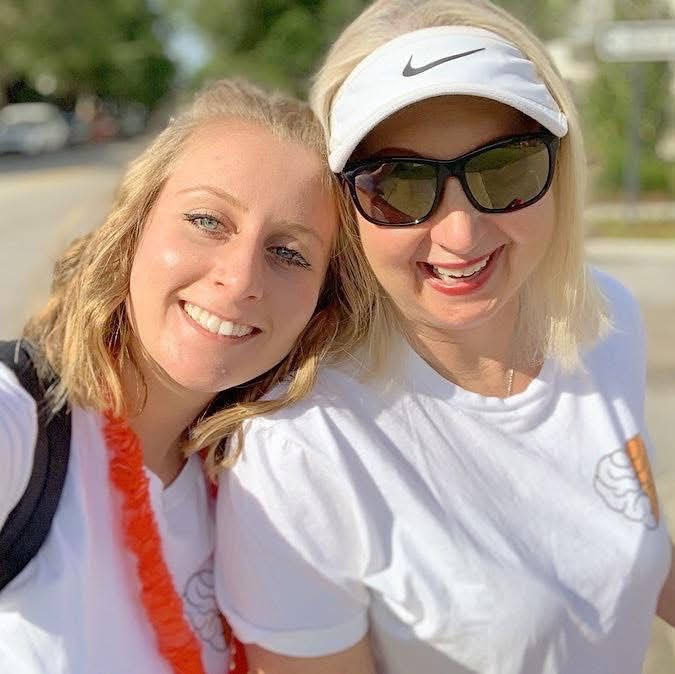
Mia was kind enough to answer a few interview questions about her groundbreaking research and her mom as her inspiration for cycling across the country:
Rayna: Can you tell us a little about your PhD thesis research? What are you studying and what have you found?
Mia: Current FDA approved therapies for MS help slow disease progression but do not stop it in its tracks. Chronic, prolonged inflammation in the brain and spinal cord is what causes disease progression in people with MS. There is a need for discovering new drug targets that combat this chronic inflammation. My PhD thesis is focused on a potential new drug target found on T cells, an immune cell that is known to be the orchestrator and initiator of most inflammatory processes. This drug target is a protein channel that allows metabolic fuel, such as amino acids, into the cell. Just as our muscles use protein as fuel to function and grow, our cells use amino acids to do the same. My data has shown that without this protein target allowing amino acids into T cells, mouse models of MS do not develop the disease.
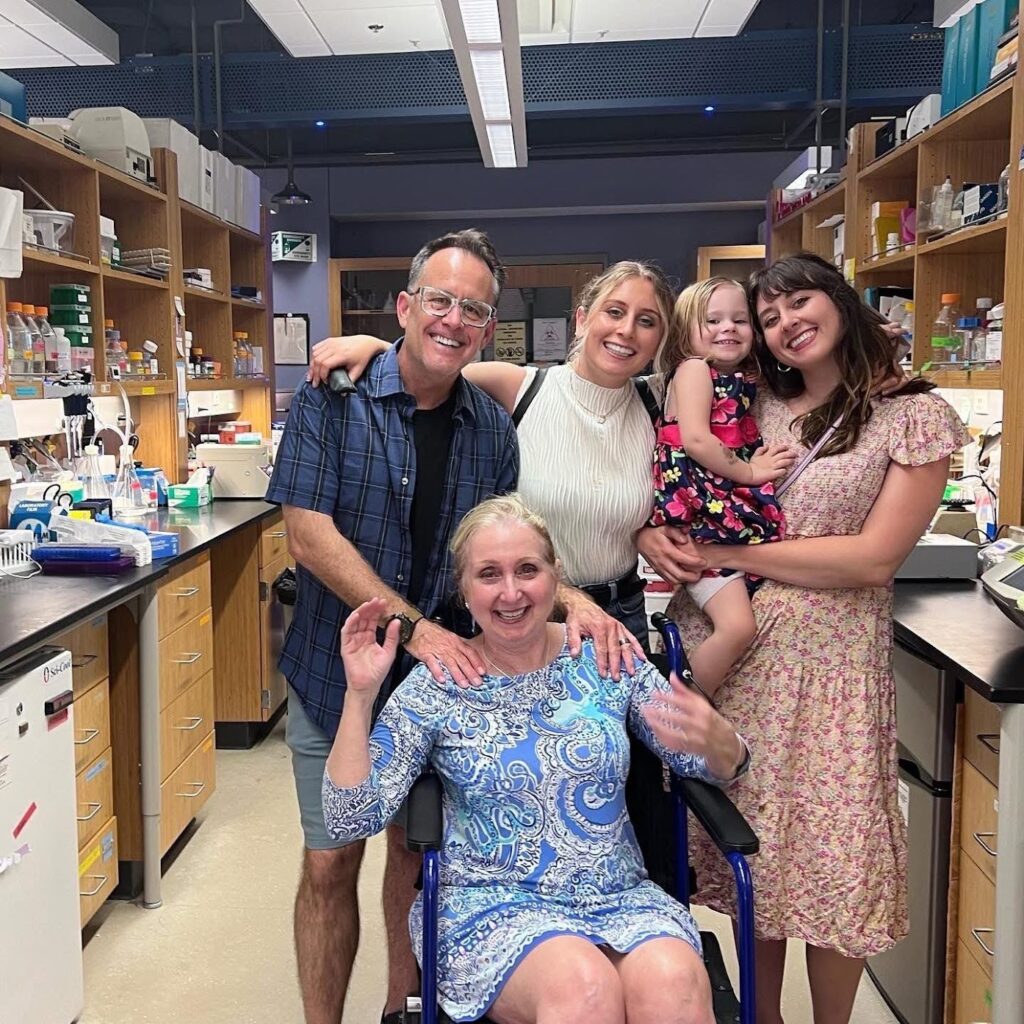
Rayna: What might your results mean for the future of MS treatment?
Mia: In MS, the immune system attacks the cells that create the myelin sheath in our brain and spinal cord. If you think of your neurons as wires in an electrical cord, the cells that create myelin sheath serve the same purpose as a rubber wire coating would by giving support and protection to our neurons. A new drug target that stops chronic inflammation targeting the myelin sheath would help with the recovery process that fails in most people living with MS. This recovery process is called remyelination, in which our body’s own stem cells are recruited to the site of damage created by the immune system in the brain and spinal cord.
However, more needs to be understood about recovery for those living with progressive stages of MS. A deeper understanding of the cause MS is also an important focus in the field. With the last few years showing more promise than ever pointing towards a cause involving infections like Epstein Barr Virus in combination with environmental or epigenetic factors. I have hope that we will see some great advances in the field in our lifetime and I’m honored to contribute to even a small part!
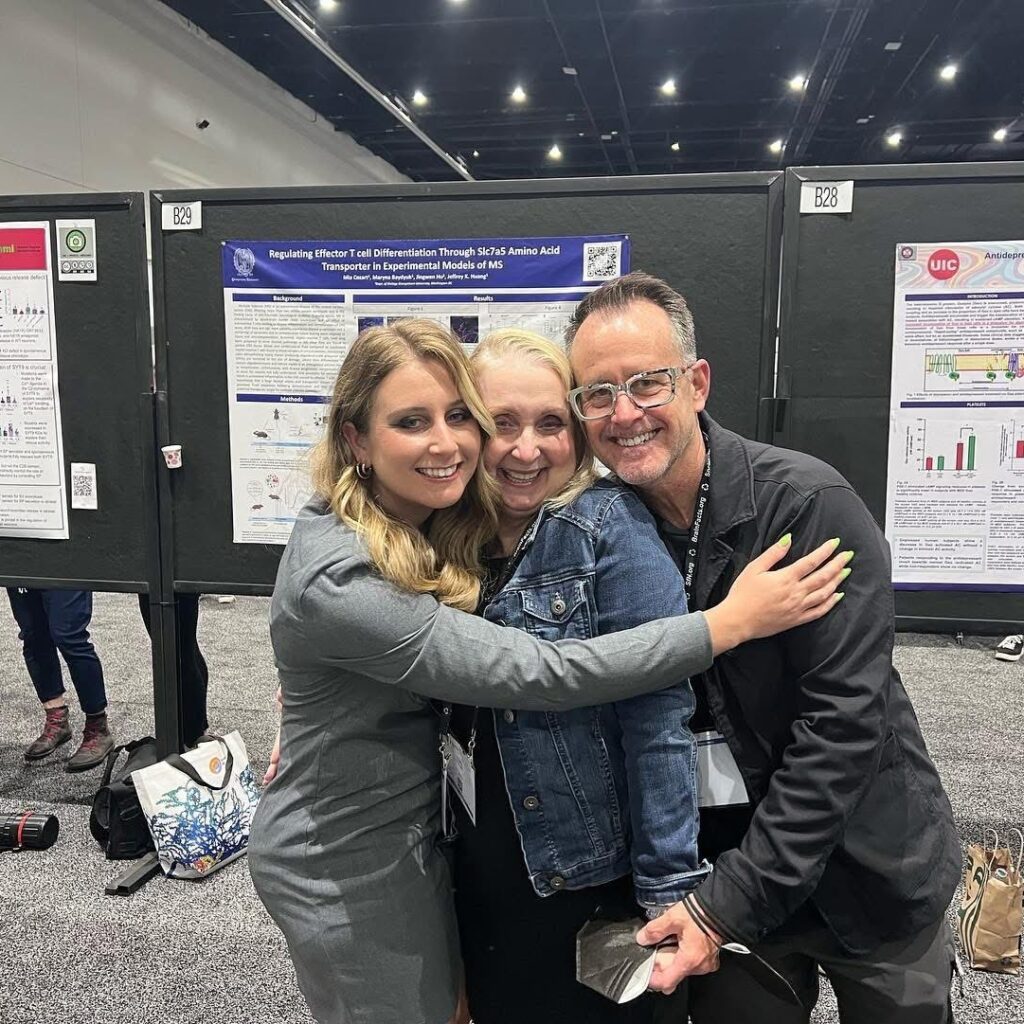
Rayna: How has your mom inspired you in your research and your daily life?
Mia: I was 4 years old when my mom was diagnosed with MS. I grew up watching her struggle with the disease while simultaneously being the best mom to ever exist. The most inspiring thing about my mom is her positive mental attitude towards every situation, good or bad. Her positive attitude and sense of humor has made such an unpredictable disease seem so manageable and has held our family together through the toughest times. Around my second year of college, I was taking classes thinking I wanted to major in architecture but that was the time my mom’s MS began to progress to a point where she had lost a lot of her independence. This was a huge change for my family and seeing my dad take on the role as her caretaker has been one of the most profound acts of love I’ve seen from any human. It was at this time that I declared my major in neuroscience and haven’t looked back since towards dedicating my life to understanding multiple sclerosis.
I am grateful for the perspective that I have being a scientist making new discoveries for a disease I have lived with for most of my life. This perspective allows me to understand the disease from all angles, it has given me the empathy to understand what each person living with MS is really going through, it has allowed me to communicate my research in a way everyone can understand, and has motivated me to work towards the goal of a world without MS.
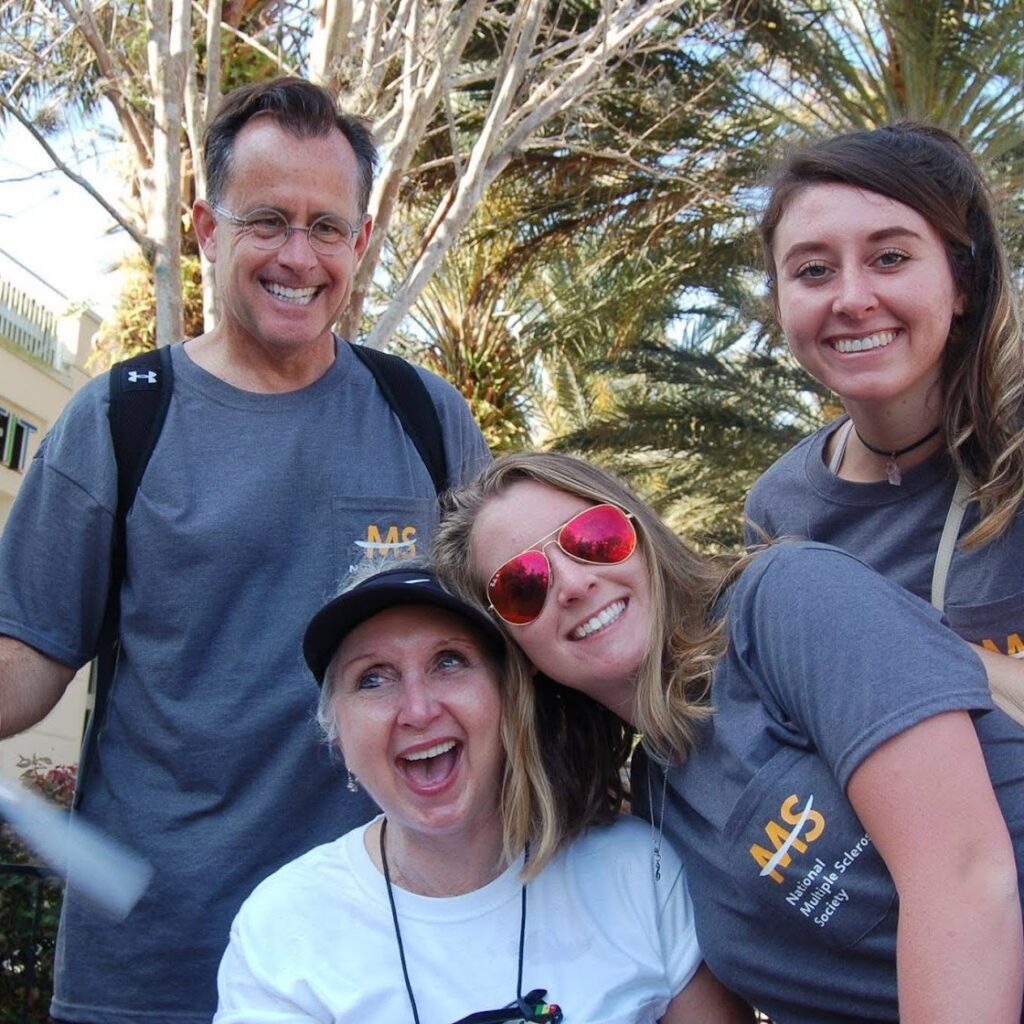
Rayna: What are you most looking forward to about riding across the country with our Northern Tier team? What are you most nervous about?
Mia: Being in a PhD for 5 years, the best way I have managed my stress was through exercise. I became a spinning instructor at school and have enjoyed every minute of being part of others fitness journeys! I’m so excited to meet others impacted by MS and ride across the country with them for such a great cause! I’m most nervous about finding a trail buddy. Although some rides will be nice at my own pace I’m definitely looking for people who will push me!

Rayna: Is there anything else you want to talk about or an answer to a question you wish I had asked?
Mia: 1 in 300 people in the US have MS but if you consider everyone impacted by MS (caretakers, family members, children, parents, friends) that number is much higher. Maybe one day we will live in a world without MS but for now I’m honored to be part of that contribution through my research and through organizations like BiketheUSforMS! #doitforDeb
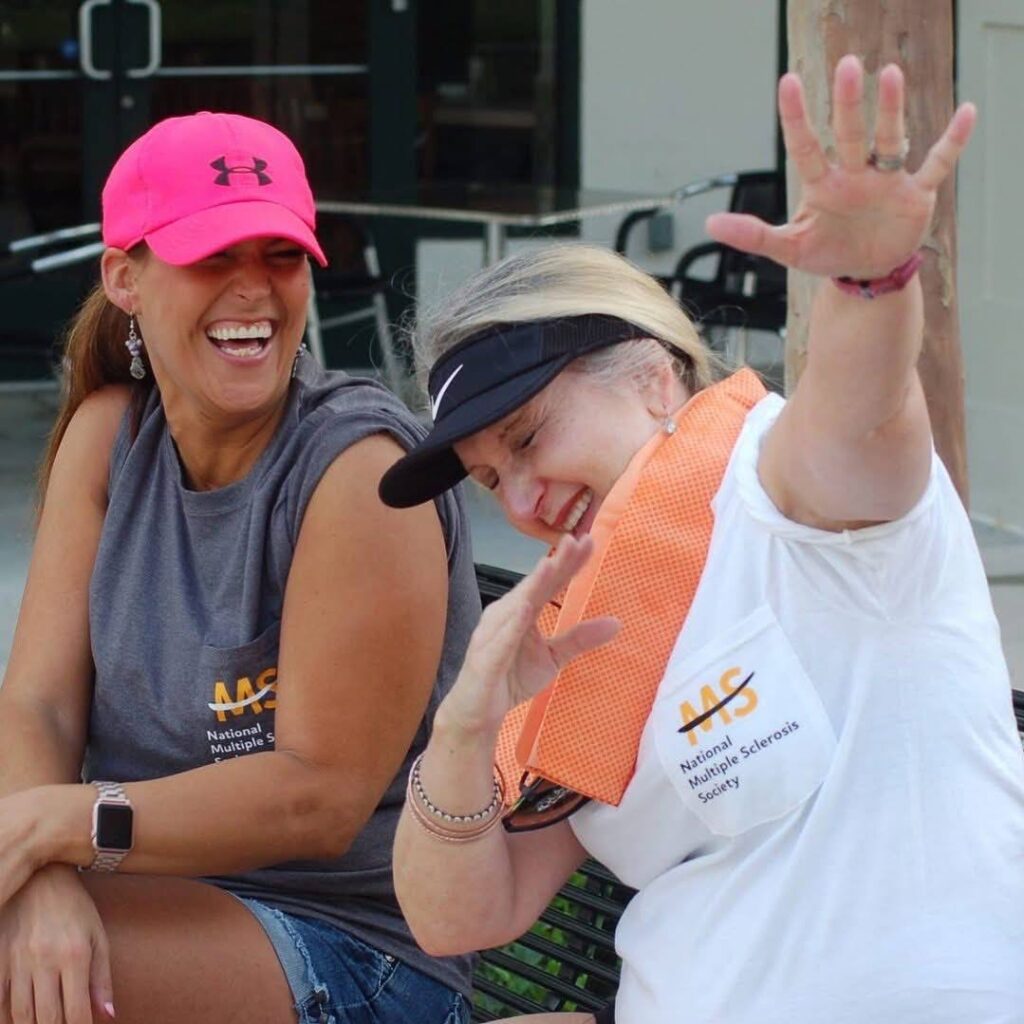
If you’re as inspired by Mia as we are, consider donating to her fundraising page for the Northern Tier. We can’t wait to see the amazing things Mia accomplishes and the impact she has on the future of treatment for people living with MS.



